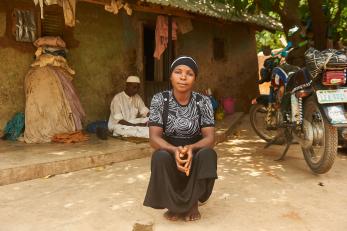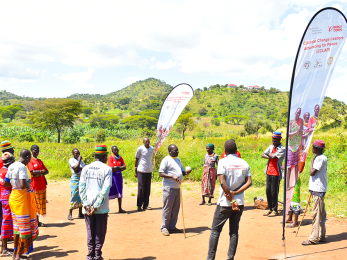Can Mediation Reduce Violence?
The Effects of Negotiation Training for Local Leaders in North Central Nigeria

Read the short overview of findings and recommendations ▸
Read the report ▸
Methodological Appendix ▸
Inter-communal disputes over land and resources can take a considerable toll in terms of lives, economic productivity, and access to basic services like healthcare and education. In such inter-communal conflicts around the world, local leaders are relied upon to help mediate and resolve disputes. In more remote areas, the government may not be present and local leaders are often trusted more than other actors due to their knowledge of and connections with communities.
As a result, peacebuilding interventions often focus on local leaders as key elements to prevent or curb violence. However, little is understood about the effectiveness of interventions that support local leaders in their efforts to resolve disputes. These programmes seldom have comparison groups, and therefore, it remains unclear if the additional support that leaders receive helps them become more successful in resolving disputes. There is also not enough evidence on the effect of these interventions on the overall community.
Understanding the effect of mediation interventions is important for reducing violence and building trust among groups. To that end, Mercy Corps conducted a randomised control trial (RCT) of the mediation component of the USAID-funded Community Initiatives to Promote Peace (CIPP) programme in North Central Nigeria (in Plateau, Kogi, and Benue states) to investigate whether training of local leaders can improve security and trust in communities affected by conflict. We find that mediation training had a positive effect on both leaders and their communities. In particular:
- Leaders who received the training felt they had stronger conflict resolution skills, perceived fewer violent events, felt there was greater security in their communities, and rated their interactions with leaders from the conflicting group more positively than those who did not receive the training.
- There was a sharper decrease of violence in communities where leaders were trained in mediation. 29% of participants who lived in communities whose leaders received the mediation training reported that they experienced a violent incident in the last six months, compared to 55% of participants in comparison sites. Participants in the intervention communities also reported feeling more secure.
- For both leaders and community members, the mediation training did not have a statistically significant effect on intergroup trust.
These findings reveal how mediation interventions can affect peace outcomes, especially showing how a mediation intervention can help manage conflict and resolve escalating tensions before they lead to violence. The findings also demonstrate the value of working with local leaders to improve their dispute resolution skills. This has implications for peacebuilding programmes seeking to prevent and stop violence worldwide.

